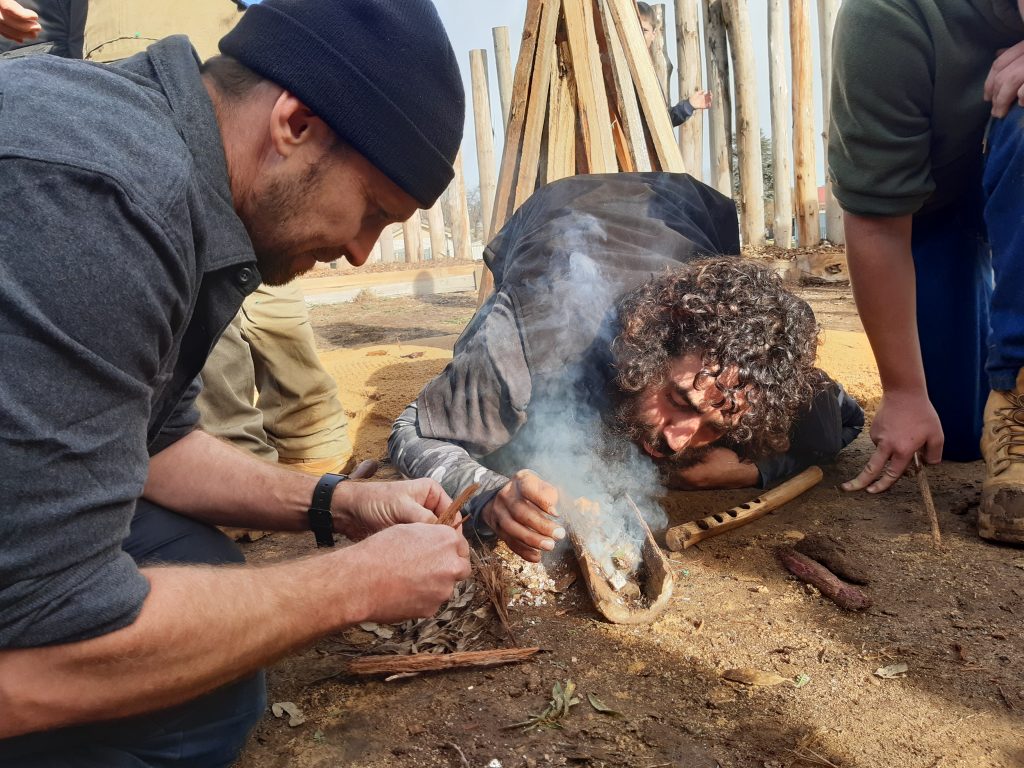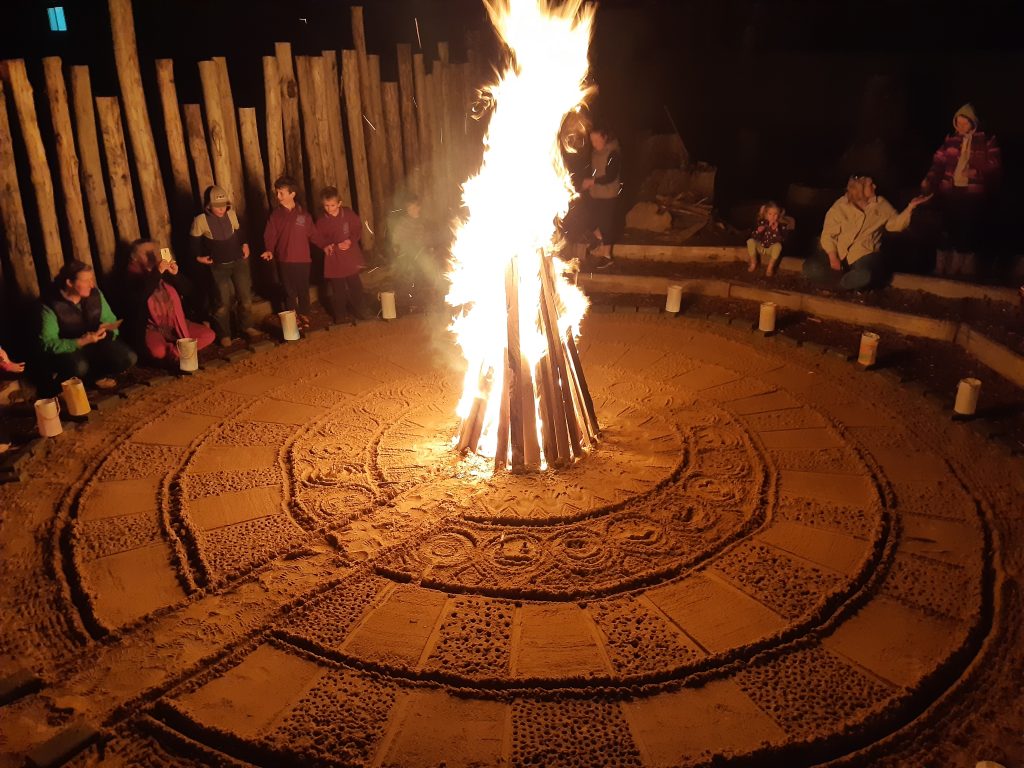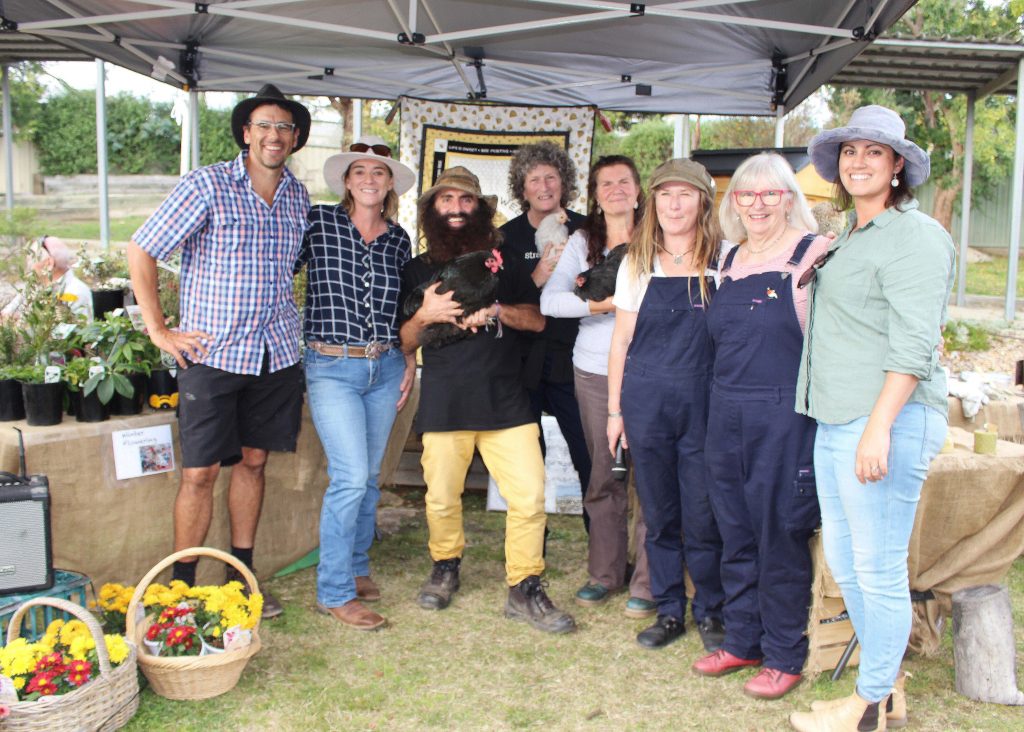Annual Review stories Community stories: 10 November 2022
In response to the recent impact of drought, bushfire and COVID, Bombala Preschool in NSW wanted to increase resilience and strengthen intergenerational connections. They decided to work collaboratively to codesign and construct a community garden space, at the same time as enhancing permaculture skills.
Their idea was to collaborate with the local high school, Public School, St Joseph’s Catholic School and 11 associated organisations to create and maintain a community-based urban and Indigenous agriculture project and recovery program on land adjoining the preschool.
The aim was to create and integrate a nature-based play space and permaculture garden for the preschool with an inclusive intergenerational program, involving seniors, staff, parents, teenagers and the preschoolers in growing and sharing food, as well as showcasing sustainable practices. Blended into this, they were hoping to include culture, arts, bushfoods, a fire ceremony and a language program to celebrate the region’s Indigenous heritage.
The concept was to have the whole project overseen and aligned to a mental health plan to assist the region in its recovery from drought, bushfires and COVID. The link between improved mental health, increased community connectedness and resilience through community gardens is well documented.
Thanks to support from FRRR through a $15,000 SRC grant, funded by Jeunesse Kids Foundation, plus funding from other donors, it started out strongly. Despite COVID, Project Manager Dan Bakker and Cultural Advisor Nathan Lygon, were appointed in Winter 2020, with preliminary site works completed by May 2021.
Community involvement ebbed and flowed. While a DIY lasagna-garden (a no-dig, no-till organic gardening method) workshop, thermal composting demonstration and formal project tour were convened in late 2020, they were poorly attended due to the escalation of the pandemic anxiety at the time, but there was still strong support to keep the project moving forward. The involvement of students and staff from Bombala High School and St Joseph’s Catholic Primary School led to both schools committing significant efforts. All year groups of St Joey’s eagerly and actively attend the fortnightly double-day sessions, with the high school having established a core group of over 15 students, each of whom now have assumed operations roles in the patch.
Students, staff and volunteers (often hand-in-hand with preschoolers) diligently worked together on activities including:
- Extensive excavation, shaping and lasagna-garden building of soils;
- Haulage of all hardwood materials, aggregates, fertilisers and construction materials;
- Significant terrace, path and congregation areas preparation;
- The creation of more than 75 square metres of seasonal garden bed;
- The trench digging and placement of a 200 bush-pole perimeter fence;
- Reconstruction of a pre-existing garden shed;
- Building an outdoor multi-purpose work-bench / kitchen;
- Commenced construction of cultural fire circle;
- Full replacement of the adjoining fence line with KidSafe approved permeable pool fencing;
- Arterial irrigation system installation;
- Initial laying of 45 metres of arterial path paving;
- The construction of a walk-in chicken coop and 25 square metre chicken run; and
- Peri-secure sheep fencing of one acre block opposite.
Daniel Bakker, Project / Events Manager from Bombala Preschool reported that some 18 months into the venture (and in the face on unprecedented challenges), the project’s initiation has been viewed a considerable success with construction activities, social / cultural events, seasonal planting and systems-integration unfolding ahead of schedule and beyond the standard expected in the drafting of the project.
“Preschool staff and students have established a deep and caring connection with the garden. Almost all planting and harvesting has involved children. St Joey’s ‘big-buddies’ students have bonded with many of the preschoolers, giving agency for respective students to assume mentor roles. Likewise, high schoolers (mostly male) have exhibited caring capacities rarely seen by their teachers,” he explained.
Several key inclusive events have been convened, doing much to extend and lift the social profile of the facility. River Cottage Aust Chef and ABC South East presenter, Paul West, worked with students to make a meal using produce from the patch and contributed to a Solstice Fire Mandala with students and preschoolers, before co-initiating the ceremonial Indigenous fire with Nathan Lygon. The first spark was tindered using traditional Indigenous fire making techniques graciously shared by Nathan. Lanterns prepared by the preschool outlined the fire mandala, which was attended by 65 family members.
In preparation for this event, a cultural name was chosen for the project – Ngulla, meaning ‘plant-based food’ in the language of the Ngarigo region. This name was offered by an Elder of the Country and secured by the Cultural Advisor, Nathan, through culturally sanctioned channels.
Shortly thereafter, they hosted ABC Gardening Australia’s Costa Georgiadis for a day of site tours, recovery and sustainability themed workshops and a panel discussion. The discussion was MC’d by local journalist, Sophie Longden, with both Costa and local identities providing input on the topic of social resilience, regenerative agriculture and environmental recovery. More than 100 locals attended the event, something unprecedented in the history of the preschool.
While COVID hampered the project significantly and in multiple ways, the project has been a great success and the groundwork is laid for ongoing projects and partnerships. With lock-up and full systems integration approaching, the facility is looking well-placed for staff to safely allow children to freely explore and integrate with the playscape, giving the project increased formal and informal education capacity.
For more inspiring stories like this, head to our FY 2021/22 Annual Review.




